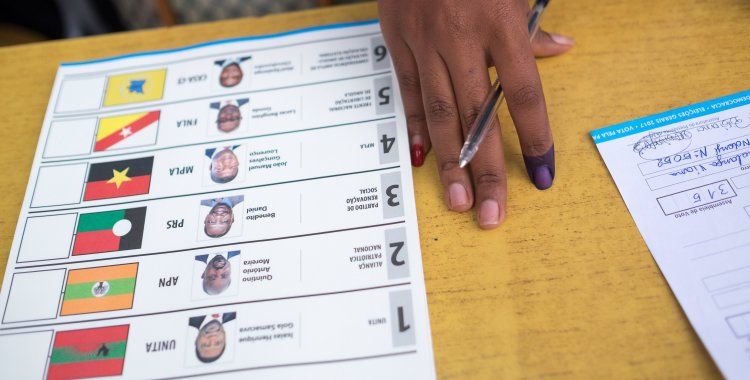The legislative initiative arises from the need to conform the current Law on Unofficial Electoral Registration, taking into account the recent constitutional amendment, which will allow the start of the electoral registration process in September this year, according to the Minister of Territory Administration, Marcy Lopes, at the end of the Council of Ministers meeting.
"We are carrying out the entire organizational process for the electoral registration to start in September," said the official, in a statement that VerAngola had access to. As for the closing period of the process, Marcy Lopes said that the forecast is for March or April 2022.
The Law of Amendment to the Unofficial Electoral Registry reiterates that, in order to exercise their right to vote, they must be registered, appearing in the database of older citizens and in the electoral rolls.
"Therefore, the larger citizens who are part of the identity card base pass to the electoral database. This is what the unofficial electoral register is summarized," explained the minister.
For Angolans abroad, the updating of the electoral register will only be done for older citizens who appear in the identity card database.
"Citizens with identity cards should go to the diplomatic and console services to update their electoral register. In this way, they will be able to proceed with their right to vote in the general elections next year", he explained.
Marcy Lopes added that face-to-face registration for the issuance of a voter's card will only be allowed to those who do not have an identity card and who are abroad and in places with difficult access in the country.
"Assuming that the database for issuing the identity card has been expanded to the entire national territory, voter cards will only be issued in areas with difficult access and it will be exceptional," he explained.
Outside the country, he clarified, the electoral registration will not be done in person, with the issuance of an electoral card, as if it were for the first time. "What will happen will only be the updating of the electoral register, with a view to updating the place of residence, which will allow the CNE to identify where citizens will exercise their right to vote."
For the fulfillment and success of the electoral process, a Presidential Decree approved the creation of the Single Public Service Desk (BUAP), which will update the electoral register throughout the country.
In a first phase, the BUAP will work with approximately 525 branches, where all citizens will have to go to update their voter registration via their identity card.
"When updating their voter card, citizens also update their residence and a citizen's card will be issued, containing their identity and place of residence. All to ensure that each voter is properly identified," said the minister.
After the approval of the Law of Amendment to the Official Electoral Registration, it will be necessary to carry out the institutional configuration of all the diplomas that make up the electoral legislative package.







